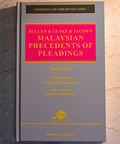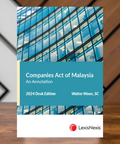



Guide To Malaysian Courts Fees, Costs & Solicitiors' Remuneration & Fees Act 1951 (Act 209) (As At 25th May 2012)
Guide To Malaysian Courts Fees, Costs & Solicitors' Remuneration
(As At 25th May 2012)
Detailed Contents of Guide To Malaysian Courts Fees, Costs & Solicitiors' Remuneration & Fees Act 1951 (Act 209):
The fees and charges related to legal procedures in Malaysia are governed by the Malaysian Courts Fees, Costs & Solicitors' Remuneration & Fees Act 1951 (Act 209). This statute is significant for everyone participating in Malaysian judicial procedures, including attorneys, litigants, and members of the general public who might need legal assistance.
The following is a guide to the fees, charges, and solicitors' compensation covered by the Act as of its most recent revision on May 25, 2012.
1. Court costs
The Act lays out the court costs that must be paid for a variety of legal actions, such as petitions, criminal cases, appeals, and civil lawsuits. The fees can be as little as RM10 or as much as RM10,000, depending on the claim's value or the relief requested.
At the High Court, for instance, filing a civil lawsuit costs RM100 for claims under RM100,001 and RM200 for claims over RM100,001 but less than RM500,000. A petition for a writ of habeas corpus must be filed for RM10, while an appeal to the Court of Appeal must be filed for RM500.
Costs The Act also specifies the costs that may be granted to the side who wins a lawsuit. Expenses may include things like legal fees, court costs, and witness fees that the side incurred while building and presenting their case.
In addition to having the option of ordering the losing party to pay interest on the costs, the court has the power to award costs to the successful party. The intricacy of the case and the behavior of the parties are just two examples of the considerations the court may consider when limiting the amount of costs awarded.
2. Compensation for Lawyers
The Act also establishes guidelines for the rates that attorneys may bill for their services. In accordance with a sliding scale, lawyers charge greater rates for situations that are more complicated or involve larger sums of money.
The Act establishes the maximum rates that solicitors may bill for a variety of legal services, such as preparing legal paperwork, giving legal counsel, and appearing in court. For instance, the highest charge for creating a will is RM 500, whereas the highest fee for attending a High Court hearing is RM 10,000.
3. Additional Fees
The Act also specifies a number of other costs that may be imposed during legal processes. These costs might apply to getting certified copies of court orders, serving court papers, and photocopying.
The Act specifies the costs for certain services, which may change based on the kind of service needed. A certified copy of a court order, for instance, costs RM2 per page, whereas serving a court document costs RM10 per document.
In conclusion, a thorough framework for regulating the fees and charges connected with judicial procedures in Malaysia is provided under the Malaysian Courts Fees, Costs & Solicitors' Remuneration & Fees Act 1951 (Act 209). Anybody interested in legal proceedings in Malaysia needs to understand this Act since it ensures that legal fees and charges are reasonable and fair.
Find more statutes like : Statutes


































